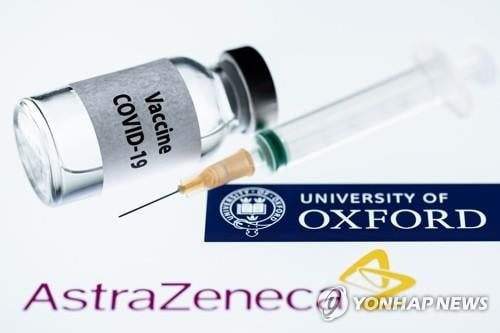Oxford University Thesis… “Increase the vaccination interval, the higher the efficacy.”
“Supports the British government’s guidelines to increase the interval to 12 weeks”… 67% reduction in the likelihood of contagion even with a single dose

The University of Oxford in the UK said that once AstraZeneca’s new coronavirus infection (Corona 19) vaccine was given, the protective effect would be maintained at 76% for a maximum of three months.
Oxford University published the results of clinical trials conducted in the UK, Brazil, and South Africa on 17,000 adults aged 18 to 55 in early December, in a paper that was not peer-reviewed, the BBC broadcast and Reuters reported. .
The researchers explained that the AstraZeneca vaccine was effective from the 22nd day after the first vaccination, maintaining a 76% level of protection until the 90th day, and that the second vaccination after 12 weeks increased the effect to 82.4%.
In contrast, if the interval between the first and second doses of the AstraZeneca vaccine was set to less than 6 weeks, the efficacy decreased to 54.9%.
When the vaccination interval was 4 weeks, the interim result was found that the average protective effect was 62%.
In other words, when the vaccination interval between the 1st and 2nd doses was about 12 weeks, the protective effect was high.
The longer the vaccination interval, the higher the efficacy is found in Ebola and influenza vaccines, the Guardian reported.
In addition, a promising initial test result showed that the possibility of transmission of the virus was significantly reduced with just one dose.
Even if AstraZeneca’s vaccine was given only once, the positive test result of gene amplification (PCR) infection decreased by 49-78% and an average of 67%.
Andrew Pollard, a professor at Oxford University, who led the clinical trial, added that based on these results, he supported the UK government’s guidelines to increase the COVID-19 vaccination interval from 4 weeks to up to 12 weeks.
Corona 19 vaccine is usually given once and then two times after 3-4 weeks, but the UK government expanded the vaccination interval to inoculate as many health vulnerable people as possible first, causing controversy.
The British Medical Association (BMA) agreed that the vaccine should be vaccinated as quickly as possible to as many people as possible, but commented that the vaccination interval should be reduced to 6 weeks instead of 12 weeks.
The results of this test are planned to be submitted to 25 regulatory agencies that have applied for approval for emergency use of vaccines, such as the UK Medicines and Health Management Product Regulatory Authority (MHRA) and the European Medicines Agency (EMA).
However, data supporting the efficacy of the AstraZeneca vaccine among the elderly aged 65 and over, which many countries are curious about, are not included in this paper.
/yunhap news
